
Inside Assam’s Bulldozer Politics Against Bengali-Speaking Muslims
Suleman Ali lived his entire life in Hasila Beel, a village in Assam’s Goalpara district. He built his home brick by brick over years of labor, married off his daughters there, and believed his documents proved he belonged. But one morning in June 2025, bulldozers reduced it all to rubble.

SIKKIM’S DISASTER OF NEGLECT : When People’s Voices Go Unheard
Despite Warnings by environment experts, development projects like dams are turning out to be deadly. Destroying mountains, flooded rivers, The flash floods, cloudburst are not just natural, they are man made disasters. Newsreel Asia’s producer Surabhi Singh travelled to Northeastern state of Sikkim to explore how a dam aggravated the flash floods of October 2023.

How Fair Is Karnataka Police to Its Minorities?
How two Muslim minority women sisters faced unfair treatment by Karnataka Police. Behind Bengaluru's giant tech offices lies a darker truth of the crimes against minorities of the state. The two Muslim women, both single mothers, now fight for survival every day. What began as a dispute with their landlady turned into a cascade of abuse, threats, and systemic neglect. Their journey — from reporting chemical attacks and violent assaults to being ignored by the very institutions sworn to protect them — reveals not just personal trauma, but a persistent crisis: the failure of India’s democracy to safeguard its minorities.
Their case is not an exception but a pattern. Karnataka’s conviction rate under the IPC in 2022 stood at 23.9%, well below the national average. Between 2020 and 2023, the state dropped 385 criminal prosecutions, including 182 tied to hate speech, cow vigilantism, and communal violence.
Their story asks a difficult question: in a democracy that promises equal justice, why are minorities still forced to beg for protection?

Is Nationalism Splitting Communities in Assam?
In Assam’s Morigaon district, Jamal Uddin, a madrasa teacher from Borbori, still carries the trauma of the 1983 Nellie massacre over alleged illegal immigrants. He lost his mother, brother and sister, who were among an estimated 2,000 to 3,000 people, mostly Bengali-speaking Muslims, who were killed in a matter of hours. The issue of illegal immigration from Bangladesh remains deeply contentious in the state’s politics and society. Successive governments have carried out actions in the name of anti-terror measures, targeting the minority Muslim community and fuelling widespread suspicion against it.
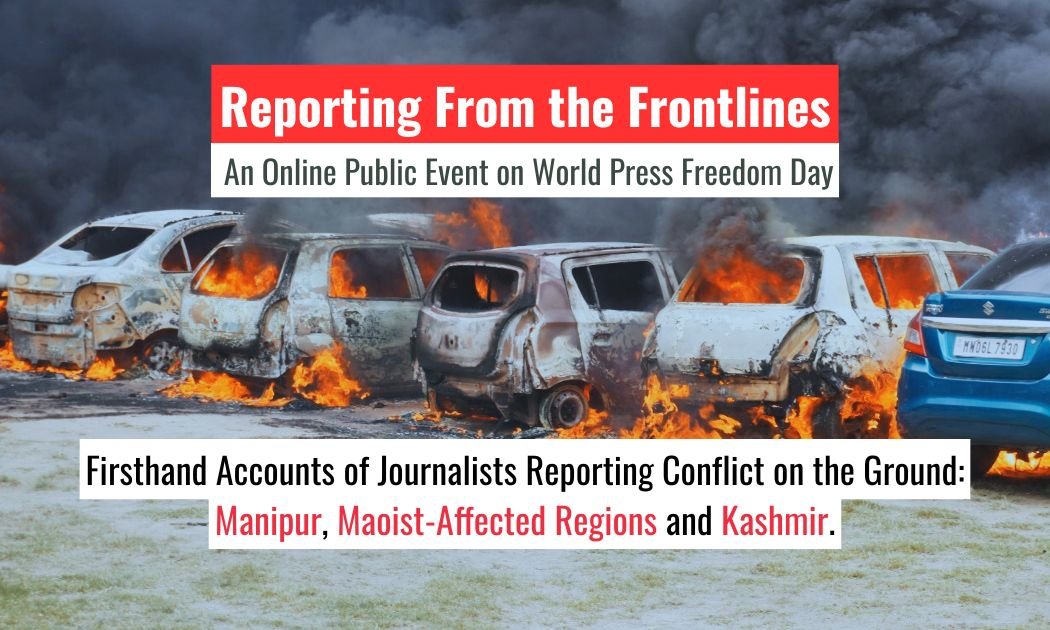
Challenges of Reporting Conflict From the Frontlines
To mark four years since its founding on World Press Freedom Day, Newsreel Asia hosted an online discussion with frontline journalists who have reported from some of India’s most volatile conflict zones. The conversation took place just days before the latest escalation of hostilities between India and Pakistan, which saw the use of missiles, drones and artillery fire along the Line of Control.

Blood and Ballots: Political Violence in West Bengal
Ajaharuddin, a primary school teacher, witnessed his family's life take a devastating turn when his brother was allegedly attacked by workers affiliated with the Trinamool Congress (TMC) party, just a day before the 2023 Panchayat elections in West Bengal. The incident revealed the perilous state of democracy in their village.
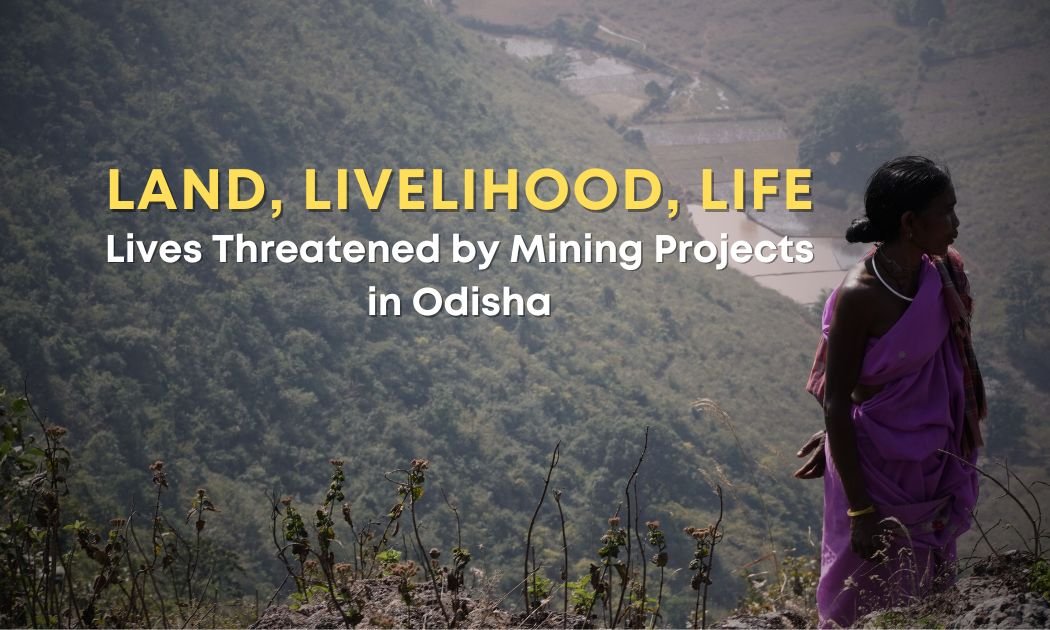
Odisha Tribals Demand Justice For Their Land and Livelihood
Umakant Naik, a resident of one of the many villages tucked away at the foothills of Sijimali Hills, is a firsthand victim of an ongoing tussle between local tribal villagers, a mining giant and the State. Known locally as Tijimali, the Sijimali Hills are home to nearly 50,000 residents, primarily from Scheduled Tribes and Scheduled Castes, whose lives are deeply connected to the region’s forest, water and land resources. The mountain streams provide drinking water, while timber and wood offer shelter and fuel. Agriculture and forest resources sustain their daily needs. The “Tij Raja,” a spiritual presence believed to dwell in the hills, serves as a cultural and spiritual anchor for the community. But this harmonious way of life is now at risk.

2025 Delhi Election: Political Parties’ Newfound Love for Women Voters
Amid the political frenzy leading up to the 2025 Delhi assembly elections, scheduled for Feb. 5 with results on the 8th, all contesting parties—from the Aam Aadmi Party (AAP) to the Bharatiya Janata Party (BJP) and Congress—are actively courting women voters.
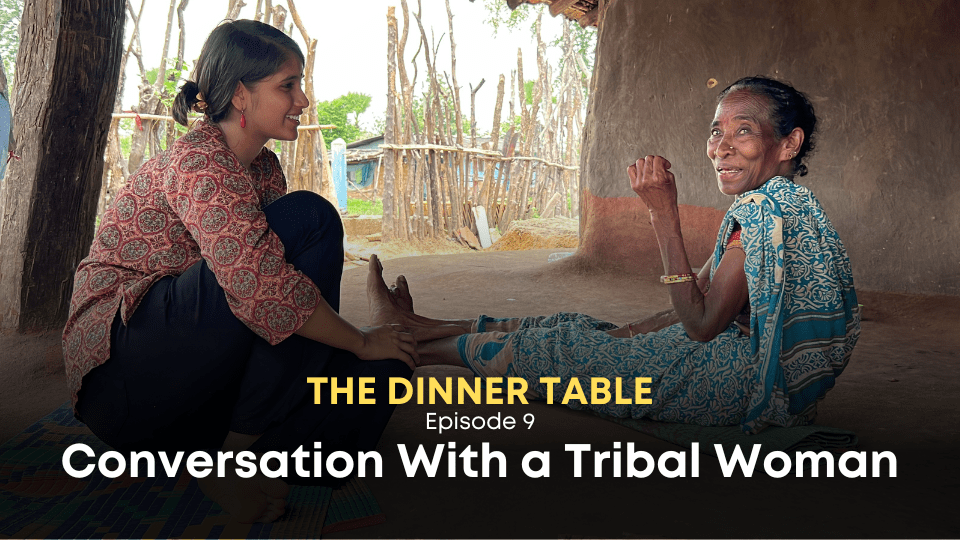
Dinner With a Tribal Woman: ‘My Sons Weren’t Maoists’
An elderly woman, Shanti Devi, who lost two of her sons in a shootout by security personnel, resides alone in a Maoist-affected region of Chhattisgarh. This episode of The Dinner Table explores her story.
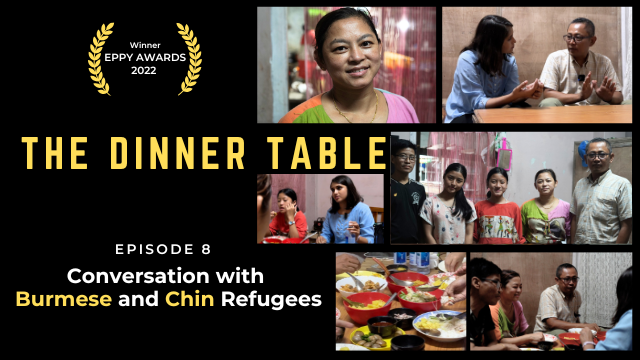
Dinner With Burmese and Chin Refugees
Ma Su and her family, Burmese refugees, have made Aizawl, Mizoram their home for the past several years after escaping Myanmar. She is one of nearly 40,000 Burmese refugees who have found refuge in Mizoram since the military coup in February 2021, many of whom are from the minority Chin Christian community. What drives these refugees to leave their homes? What kind of lives do they lead here, and what are their expectations of the local community? In this episode of The Dinner Table, host Harshita Rathore cooks a meal with Chin and Burmese refugees and sits down with them to share the meal while engaging in heart-to-heart conversations.

DINNER WITH A KUKI-ZO LEADER | Demand for Autonomy
It's been over 16 months since ethnic violence erupted in the northeastern state of Manipur, involving the majority Meitei community and the Kuki-Zo tribes. The resulting divide is so severe that an unofficial border has effectively separated the two communities within the state. As the violence carries on, efforts by the state and central governments to resolve the crisis appear minimal, and the future remains uncertain. To gain insight into what lies ahead, host Harshita Rathore sat down for dinner with a Kuki-Zo leader, Dr. Chinkholal Thangsing, who heads the Kuki People’s Alliance. Affectionately known as Dr. Lal, he proposes a solution he believes could potentially lead to lasting peace.
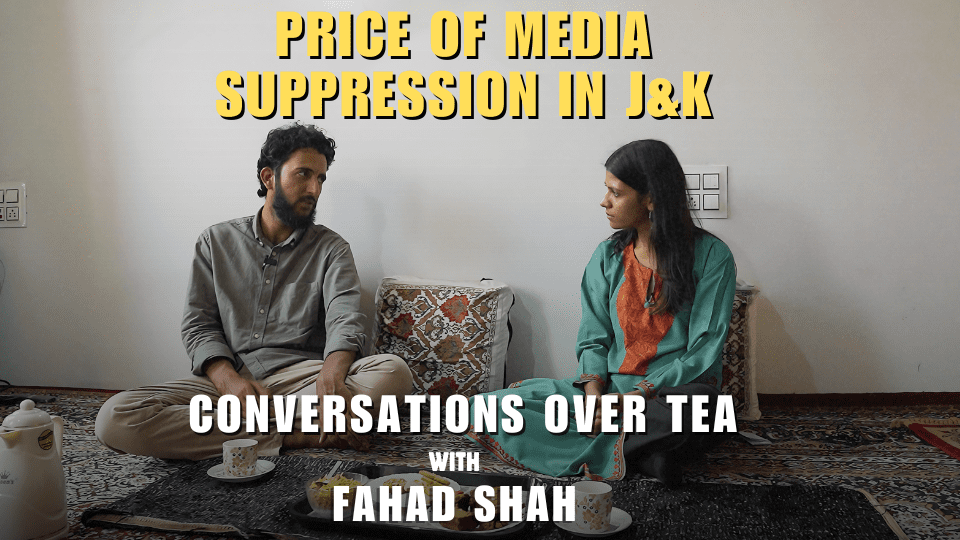
The Price of Media Suppression in Jammu & Kashmir
Fahad Shah was a student in 2009 when he launched Kashmir Walla, a modest blog that would grow into a vital voice in the fraught landscape of Jammu & Kashmir. Over the years, Shah’s work came to embody a passionate dedication to journalism—until 2022, when he was arrested under India’s stringent anti-terror laws, accused of 'propagating terror.' He is not alone. Since the Indian government's abrogation of Article 370, which revoked Jammu & Kashmir's special status, journalism in the region has become increasingly difficult. In this account, Shah reflects on his journey, the evolution of Kashmir Walla, and the 600 days he spent as a prisoner.
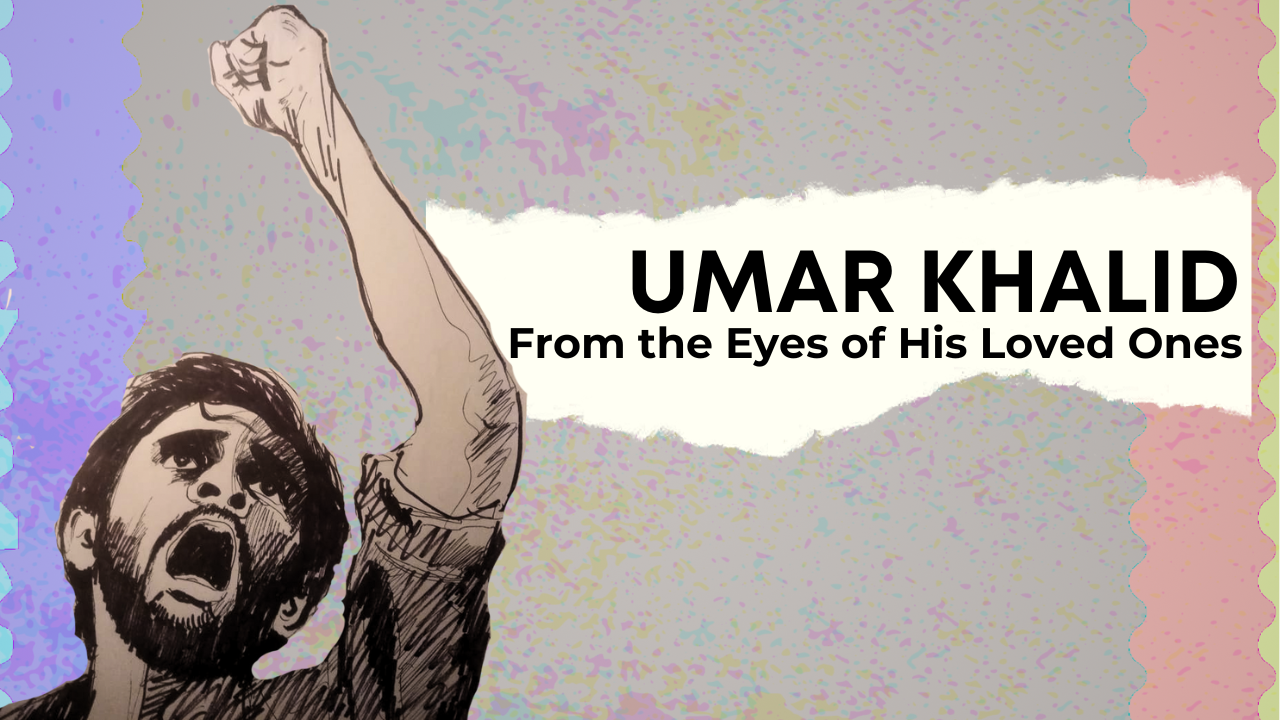
UMAR KHALID | From the Eyes of His Loved Ones
Umar Khalid, who once dreamed of playing cricket for India, now faces serious terrorism charges from the government. The vilification spurred by media trials reached its peak with a chilling assassination attempt. He's been in prison for 3.5 years as of March 2024, highlighting a worrying crackdown on dissent in India. This is his story, as told by his loved ones.
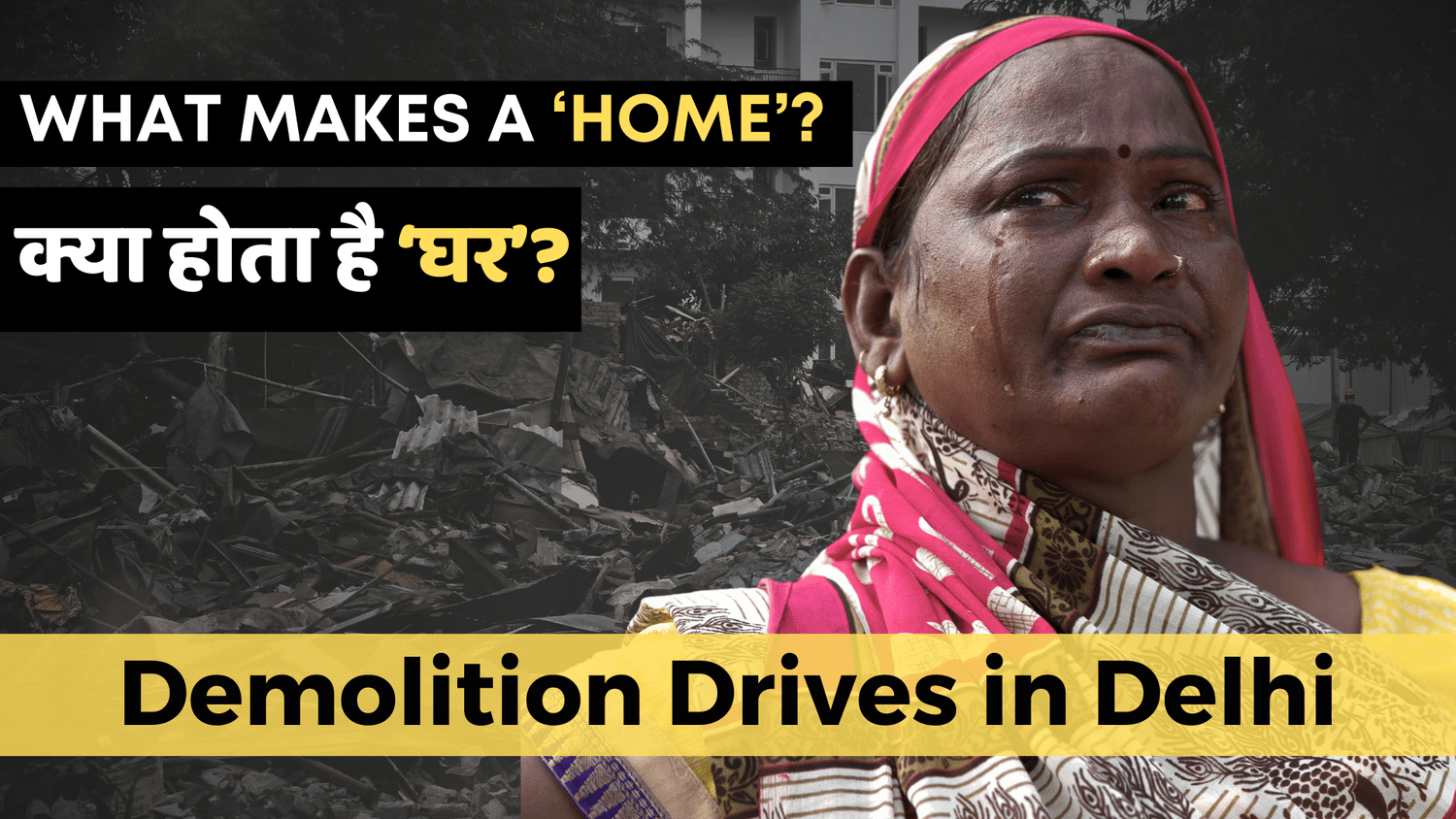
WHAT MAKES A ‘HOME’ | Demolition Drives in Delhi
The video delves into the lives of Delhi's slum dwellers, whose homes perpetually face the threat of demolition. In a recent case, on May 19, 2023, residents of Priyanka Gandhi Camp in Vasant Vihar, Delhi, received official notices from the National Disaster Response Force (NDRF) to vacate the land by June 15, 2023. Despite legal battles fought by the PG camp residents, their ‘Jhuggis’ (slums) were ultimately demolished. Between April 1 and July 27, 2023, Delhi witnessed 49 demolition drives. In 2023, at least 1600 homes have been destroyed and about 2,50,000 are homeless in India’s Capital. This story is about the plight of those who become homeless overnight.
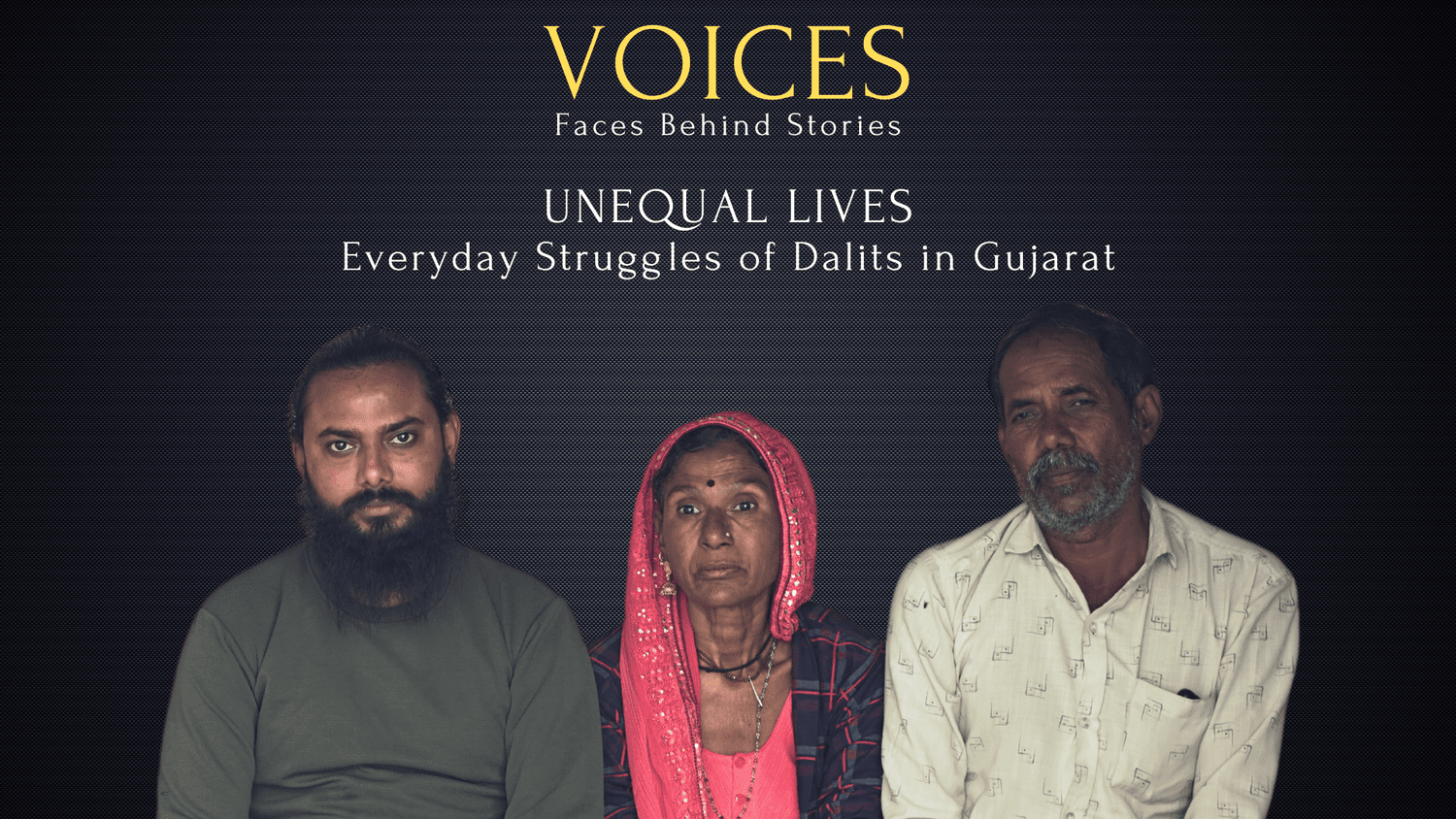
UNEQUAL LIVES | Everyday Struggles of Dalits in Gujarat
Bhupat Bhai Sekhaliya, a diligent and hardworking rickshaw driver from Gujarat, belongs to the Dalit community. Despite his unwavering dedication, the respect he deserves eludes him, particularly from individuals of "upper" castes in his vicinity. Many daily activities, deemed "normal" for any resident, remain inaccessible to him. Defiance can lead to physical assault. However, Bhupat's story is not an isolated incident. In Gujarat, the spectre of violence against Dalits looms large, with an average of four cases reported daily. The past seven years have seen a staggering total of over 9,000 documented instances of such violence.
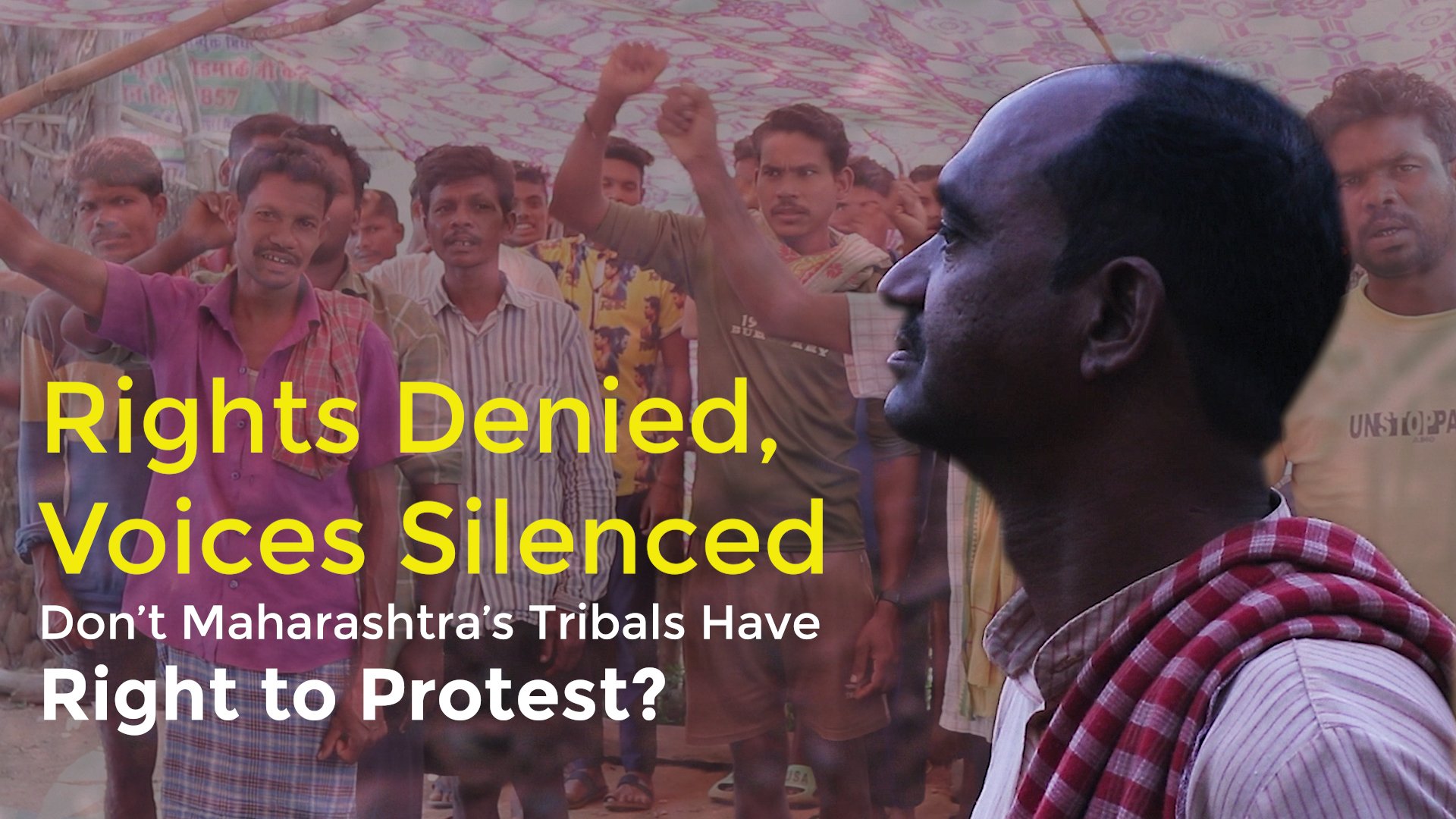
Maharashtra’s Tribals: Rights Denied, Voices Silenced
In Maharashtra's #gadchiroli district, Lalsu bravely exposes the environmental and cultural impacts of #mining. Shockingly, 21 tribals from 70 villages are arrested for protesting against injustice. Protest, their sole voice, is under threat as the government’s heavy-handed suppression of dissent intensifies, revealing a disturbing pattern.

FISH WITHOUT WATER | Tribals Fear Separation From Forest and Land
Thakur Ram Orkera is just one of many tribals who depend on the forest for their daily needs. However, their source of survival is at stake. Orkera, along with thousands of other indigenous individuals in Chhattisgarh's Hasdeo forest region, faces the potential loss of both livelihood and cultural heritage due to governmental interventions and a major corporation's coal mining plans. Undeterred, Thakur and the Adivasis are resolute in their stance: enough is enough.
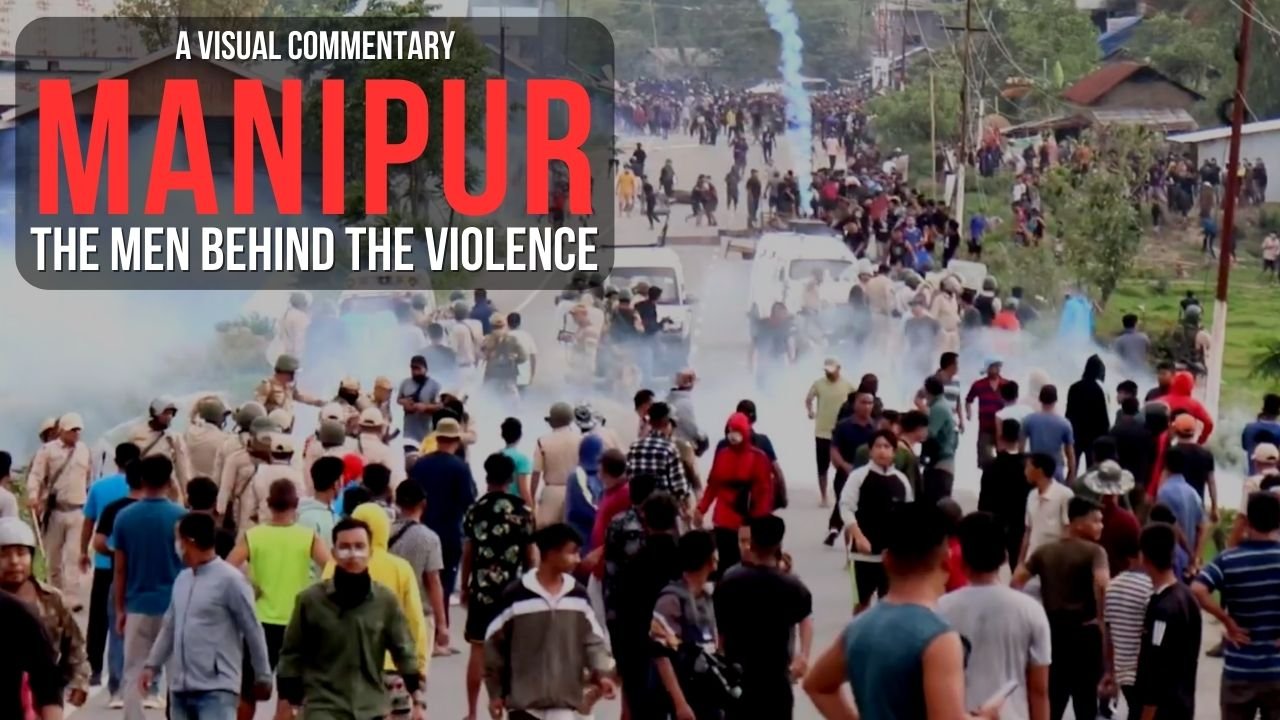
MANIPUR | The Men Behind Violence In Manipur
Newsreel Asia revisits Manipur, a state in Northeast India, now besieged by near-daily attacks since May 3, 2023. Moving from survivors' homes to violence epicentres, this mini-documentary investigates alarming accusations that implicate both local extremist factions and state security forces in the attacks on the Kuki-Zo tribal community.

WHY NOT 50-50? | Unequal Representation of Women in Indian Politics
Rashmi Singh and Sadaf Khan, like many women in Madhya Pradesh state, aspire to participate in public life by running for elections. They have joined the ongoing movement advocating for equal representation of women in Indian politics. Presently, women hold less than 15% of seats in the country's parliament and most state Assemblies.

SILENCING DEMOCRACY | Curbs on the ‘Right to Protest’ in The National Capital
Gulfisha Fatima, a former student turned activist from Seelampur in Delhi, was arrested by the Delhi Police in April 2020. Alongside numerous other activists who participated in the anti-CAA movement, she faced charges under anti-terror laws and was booked under the stringent UAPA (Unlawful Activities Prevention Act).
